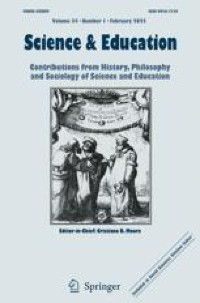"Interestingly, belief in pseudoscience increases with education, until you get to a post-graduate level of science education. So, unless you are beyond college in a science field, ...people actually will tend to endorse more paranormal and pseudoscientific beliefs at higher education levels." - Steven Novella

Findings from a Variety of Studies:
"A higher incidence of myths (higher percentage of questions answered incorrectly) was predicted by higher general knowledge of the brain.
In contrast to our hypothesis and earlier findings by Howard-Jones et al. (2009) in a sample of trainee teachers, we did not find a protective effect of knowledge on belief in myths. Instead, our results showed that belief in neuromyths correlated positively with general knowledge about the brain.
Experiments by Weisberg have shown that people with some neuroscientific knowledge (people who followed an introductory cognitive neuroscience class) were fooled by neuroscientific explanations in the same way as laypeople. Only neuroscience experts (defined as people who were about to pursue or had a degree in cognitive neuroscience or related areas) were able to correctly identify non-sense neuroscientific findings. Thus, the level of knowledge of teachers in our sample was not sufficient to protect them against the general credibility of neuroscience findings.
In conclusion, this research suggests that teachers who are enthusiastic about the possible application of neuroscience findings in the classroom, often find it challenging to distinguish pseudoscience from scientific facts. Possessing greater general knowledge about the brain does not appear to protect teachers from picking up neuromyths."
"However, several polls have shown that at least for some areas of pseudoscience, education does not seem to correlate with skepticism (Goode 2002). For example, in the United States, the education category with the highest belief in extraterrestrial visits aboard UFOs is that of people with a college education (51%), although post-graduate education did lead to more skepticism (but still with 39% believers).
Walker et al. (2002) have put forth the suggestion that science education is no guarantee of skepticism, and our general results seem to support the conclusions based
on their own study.
We also made the somewhat more risky prediction that science majors would display more conceptual understanding of science, allegedly the true goal of science education, than their non-science counterparts would. No such difference was found.
The third prediction was even bolder: we speculated that science majors would display lower degrees of pseudoscientific belief, at least in part as a result of their science training (though, of course, effects due to self-selection are also possible). Again, we were disappointed: while students in our samples did show generally low degrees of pseudoscientific belief (with the notable exceptions of the healing powers of magnets, the existence of aliens being held at the government facility known as "Area 51," and the existence of telepathy or clairvoyance), no difference was found between the majors."
Is knowledge of science associated with higher skepticism of pseudoscientific claims?
"There is a very strong relationship between both science education and theoretical programs related to HBKI but not to PSBI. A theoretical education in upper secondary school gives more knowledge in human biology than other education but not automatically a more skeptical view to pseudo-science."
Student's Beliefs in Pseudoscience
Red Flags of Pseudoscience

"pseudoscience is perceived as more scientific and credible when disguised through referencing and credentialing"
Faking science: scientificness, credibility, and belief in pseudoscience
Pseudoscience indicator:
Lack of falsifiability and overuse of ad hoc hypotheses
Lack of self-correction
Emphasis on confirmation
Evasion of peer review
Overreliance on testimonial and anecdotal evidence
Absence of connectivity
Extraordinary claims
Ad antequitem fallacy
Use of hypertechnical language
Absence of boundary conditions
Distinguishing scie nce from pseudoscience in school
psychology: Science and scientific thinking as safeguards



Solutions
"As a result, courses that simultaneously teach critical thinking and directly refute misinformation and myths are highly successful at lowering belief in paranormal and pseudoscientific subjects."
"The overall pattern here is that all students who received the pseudoscience instruction were likely to reduce epistemically unwarranted beliefs, not just those with a specifc profle.
Therefore, we suspect that explicit pseudoscience instruction really does reduce epistemically unwarranted beliefs."




